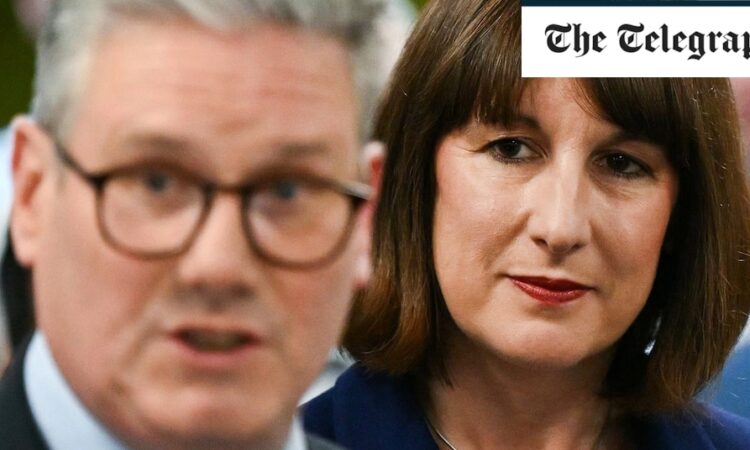
The prospect of all that extra QE debt being sold inflamed financial markets, with gilt prices immediately falling, pushing up yields before then-chancellor Kwasi Kwarteng had delivered the “mini-Budget”. The Bank’s previous failure to match the US Federal Reserve’s decisive interest rate rises meant sterling was already under pressure.
Of course, Truss not sharing her plans with the Office for Budgetary Responsibility raised eyebrows. And much in the presentation of her higher-growth-lower-tax policies played into the hands of her ideological enemies across the policy-making establishment.
I mention all this because, with polling day less than two weeks away, Labour’s spending plans are coming under scrutiny. And the party’s claims it can significantly increase spending “without raising taxes on working people” rely heavily on Labour’s own decidedly Truss-ite “pro-growth” policies delivering the economic expansion needed to justify higher borrowing.
The position seems to be that a Labour government can borrow more with no problems whereas Liz Truss couldn’t, precisely because shadow chancellor Rachel Reeves “used to work at the Bank of England” and isn’t Liz Truss. This isn’t true – and claims that it is risk sparking bond market turmoil and resulting economic chaos far worse than we saw in the autumn of 2022.
Back in the 1970s – a time of sky-high inflation and serious financial turbulence – ‘Gnomes of Zurich’ was a term widely-used to describe the distant but powerful world of global financial markets.
Coined by Labour deputy leader George Brown, this disparaging phrase represented in the public mind the limits placed by financiers if governments borrowed and spent too much – with a tumbling currency and fiscal meltdown as investors charged ever more to lend.
This happened in 1976, an episode too often erased from Westminster’s collective memory, when Britain suffered the ignominy of having to be rescued by the International Monetary Fund. A generation of industrial subsidies, soft-budget constraints and “spend to grow” hubris backed Britain into an insolvency cul-de-sac. After months of denial, the markets forced Jim Callaghan’s Labour government, “cap in hand”, to seek an IMF bailout.
I’m not saying that will happen over the coming months. But the notion it couldn’t because Truss and the Tories will be gone is reckless in the extreme.
Some say Labour is set to “get lucky” with the economy – coming into office as the cost of living crisis is easing. Inflation hit a near three-year low last week, with the consumer price index rising just 2pc during the year to May, hitting the Bank of England’s target, and down from 2.3pc the previous month.
But with food prices still 25pc up compared to early 2022 and energy bills some 60pc higher, millions of cash-strapped households are unlikely to thank Rishi Sunak’s Tories for making them feel richer.
Pay growth was 5.9pc between February and April, compared to the same period last year – and retail sales rose 2.9pc in May, up from 1.8pc the month before.






